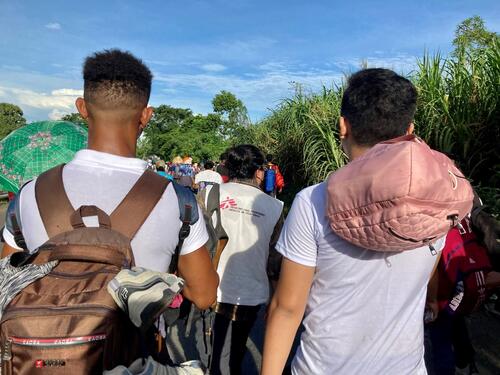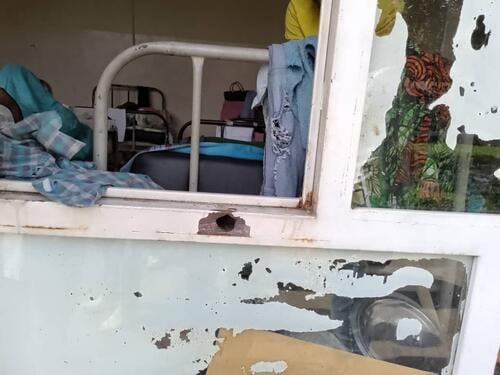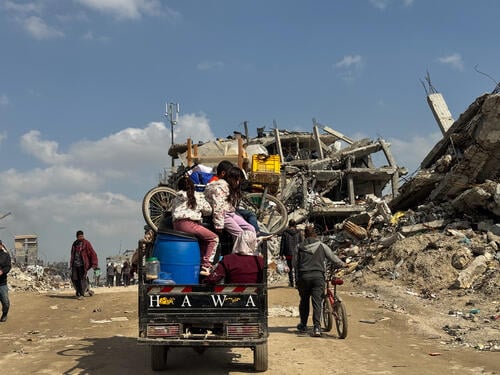- Thousands of migrants are trapped in dangerous conditions without access to medical care as a result of Mexican and US asylum policies.
- MSF urgently calls on the Mexican and US authorities to take action to address the worrying humanitarian situation of migrants throughout Mexico.
Mexico City – Tens of thousands of migrants are trapped in overcrowded and deplorable conditions without proper access to medical and social services in northern and southern Mexico, due to failed asylum policies and mass deportations from the US.
MSF urgently calls on the Mexican and US authorities to take action to address the grave humanitarian situation of migrants throughout Mexico, particularly in border regions. The US and Mexican governments must work together to promote access to protection in the region instead of coordinating on interdiction.
“People find themselves with few alternatives for shelter. They are living in overcrowded conditions, or on the street, in precarious sanitary conditions and at risk of COVID-19 infection,” says Christoph Jankhöfer, MSF project coordinator for migration in Mexico. “We are concerned about the anxiety, depression and hopelessness of these people in the absence of a response from authorities.”
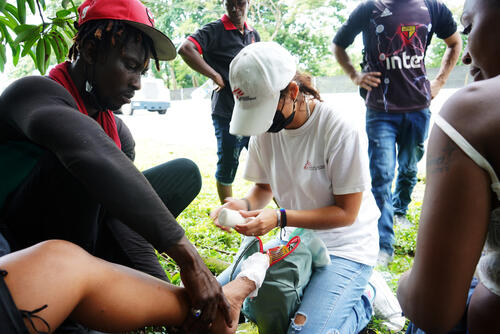
Emergency intervention in the south
This week, we sent an emergency team to Tapachula in southern Mexico, where approximately 40,000 migrants are stuck without access to housing, basic services, or opportunities for employment. On 4 September, 500 of these migrants joined a caravan north to protest their conditions and abandonment.
A first MSF assessment team, which accompanied the caravan for part of the journey, treated patients for dehydration, headaches, muscle aches and wounded feet. We also treated a case of hypoglycaemia.
Migrants in Tapachula come from Honduras, Guatemala, El Salvador, Venezuela, Haiti and Cuba. A significant number of people in Tapachula are women and children. They have been in limbo for months. Many recently crossed the border with Guatemala, while others were deported by the US to the northern border of Mexico and were then transferred to southern Mexico by the Mexican authorities.
These policies keep people in conditions of vulnerability, violating their right to seek asylum.Anayeli Flores, MSF humanitarian affairs officer
Living in limbo
More than 2,000 people are living in a similar situation in the northern town of Reynosa, some 200 metres from the international bridge that links the city with Hidalgo, Texas. Migrants there – most of whom are from El Salvador, Honduras and Guatemala – are exposed to inclement heat without adequate access to basic services and at serious security risk.
In Reynosa's Plaza de la Republica there are only 18 public toilets available at the camp, approximately one for every 110 people. Those who want to bathe or wash their clothes must pay 10 Mexican pesos (half a dollar) to use the showers and sinks for a maximum of 10 minutes. Drinking water (which is sometimes scarce), clothing, food, mattresses, tents, medicine and medical consultations are being provided by civil society organisations.
“The only option people have is to stay in Mexico and try to survive in deplorable conditions, or to attempt to cross into the US again,” says Anayeli Flores, MSF humanitarian affairs officer in Reynosa.
“Neither the Mexican nor the US government are providing adequate support, despite the fact that it is US policy and Mexico’s cooperation with these policies that keep these people in conditions of vulnerability, violating their right to seek asylum,” says Flores.
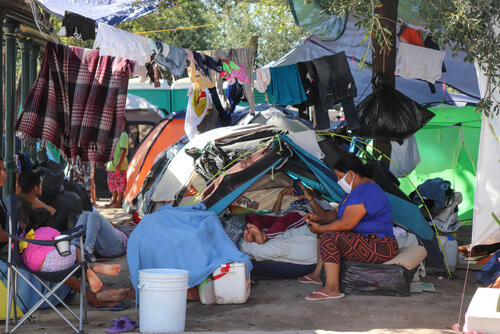
Psychological disorders
In Reynosa, our teams provide primary health and mental health consultations, as well as counselling through a team of social workers. We are also supporting in the provision of drinking water at the camp. Between March and August this year, we carried out 902 consultations.
Our teams are mostly treating respiratory, digestive and dermatological conditions, largely due to severe overcrowding and obstacles to proper hygiene. Having walked long distances along the route, migrants also present with foot pain and general muscle aches.
Most of the people we assist have left their country of origin due to violence, and they are also often victims of violence along the migration route north. In addition to this history of trauma, people are dealing with the mental health impact of the precarious nature of their living conditions and migration status, as well as separation from their family members. This can lead to emotional disorders such as anxiety, stress, excessive fear, constant worry and, in severe cases, psychological disorders.
Policies that criminalise migration, in tandem with a lack of an adequate humanitarian response, repeated violence and persecution against migrants, are unacceptable and endanger the lives of thousands of men, women and children.Gemma Domínguez, MSF general coordinator in Mexico
Policies that criminalise migrants
Most of the migrants in Reynosa, including women, pregnant women, children, the elderly, LGBTQ people, indigenous and non-Spanish speakers, have been expelled from the US through Title 42, a US public health order policy that constitutes a flagrant violation of international law. The policy uses the COVID-19 pandemic as a pretext to block people seeking protection in the US and deport them to border cities in Mexico, with the cooperation of the Mexican government. These policies have put migrants in direct danger and have generated worrying episodes of violence.
“The situation of migrants in Mexico is unsustainable,” says Gemma Domínguez, MSF general coordinator in Mexico. “Policies that criminalise migration, in tandem with a lack of an adequate humanitarian response, repeated violence and persecution against migrants, are unacceptable and endanger the lives of thousands of men, women and children.”



